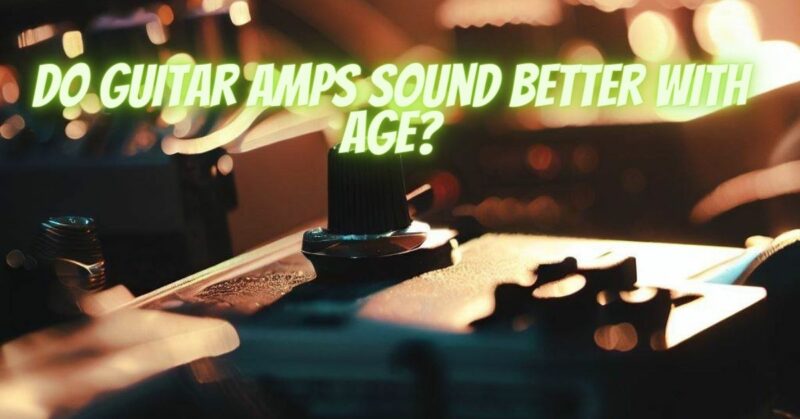The world of guitar amplifiers is filled with myths and legends, and one common belief is that amps sound better with age. This notion is particularly prevalent when it comes to vintage guitar amps, which have gained a reputation for their unique and desirable tones. In this article, we will delve into the concept of whether guitar amps truly sound better with age or if other factors contribute to the perceived improvement in tone over time.
The Myth of Aging Amps:
The idea that guitar amps improve with age is rooted in various factors:
- Vintage Components: Vintage amps often contain electronic components that are decades old. Some enthusiasts argue that these aging components, particularly vacuum tubes, capacitors, and resistors, develop a unique character over time that contributes to the vintage amp’s tone.
- Wear and Tear: Vintage amps that have been well-used may have undergone physical wear and tear. Some players believe that the vibration and stress endured over the years may have positive effects on the amp’s sound, particularly on the speakers and cabinet.
- Electronic Drift: As electronic components age, there might be subtle changes in their electrical properties, leading to electronic drift. Some guitarists claim that these changes result in a warmer and more desirable tone.
The Reality of Vintage Amp Tone:
While the notion of amps sounding better with age holds a certain romantic appeal, the reality is more nuanced:
- Individual Variability: Not all vintage amps sound better with age. The effect of aging on an amp’s tone can vary significantly depending on the specific make, model, and manufacturing quality.
- Component Quality: The components used in vintage amps were subject to the manufacturing standards of their time. Some vintage amps may have had higher-quality components that contributed to their legendary tone, while others may have used less durable parts that affect their performance negatively over time.
- Maintenance and Care: How an amp has been maintained and used throughout its life plays a significant role in its overall performance. Well-maintained vintage amps may retain their tone and reliability, while neglected ones may deteriorate.
- Subjective Perception: The perception of tone is highly subjective, and what one guitarist considers “better” may not align with another’s preferences. Personal taste and playing style heavily influence how a guitarist perceives an amp’s tone.
The idea that guitar amps sound better with age is a complex and subjective topic. While some vintage amps have become legendary for their unique and desirable tones, it is essential to recognize that the improvement in tone over time is not an inherent quality of all aging amps.
The individual characteristics of specific amplifiers, the quality of their components, how well they have been maintained, and the subjective preferences of players all contribute to the perception of a vintage amp’s tone.
Ultimately, whether an amp sounds “better” with age is a matter of personal preference. Vintage amps have their allure and historical significance, and they continue to be sought after by musicians seeking specific tonal qualities and a connection to the past. However, modern amplifiers have also made significant advancements in technology, offering a wide range of tones, features, and reliability that cater to the diverse needs of today’s guitarists.
In the end, the “better” sound of a guitar amp is in the ear of the beholder, and the choice between vintage and modern amps will depend on individual taste, playing style, and the desired tonal characteristics. Both vintage and modern amps have their unique appeal and contribute to the rich tapestry of guitar amplification.


